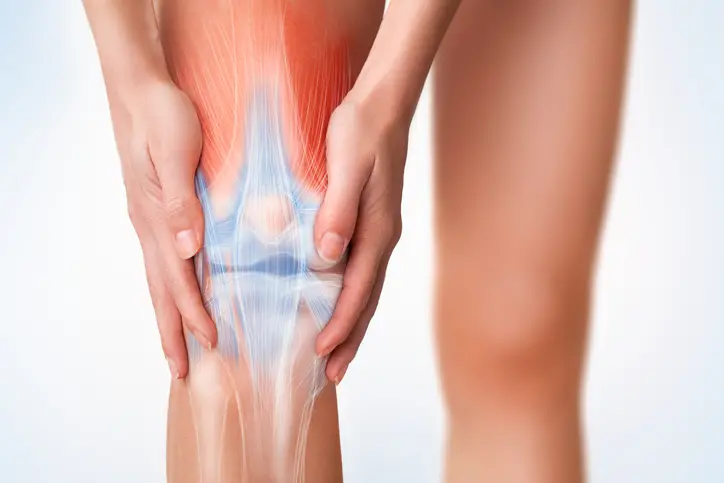- Home
- Medical news & Guidelines
- Anesthesiology
- Cardiology and CTVS
- Critical Care
- Dentistry
- Dermatology
- Diabetes and Endocrinology
- ENT
- Gastroenterology
- Medicine
- Nephrology
- Neurology
- Obstretics-Gynaecology
- Oncology
- Ophthalmology
- Orthopaedics
- Pediatrics-Neonatology
- Psychiatry
- Pulmonology
- Radiology
- Surgery
- Urology
- Laboratory Medicine
- Diet
- Nursing
- Paramedical
- Physiotherapy
- Health news
- Fact Check
- Bone Health Fact Check
- Brain Health Fact Check
- Cancer Related Fact Check
- Child Care Fact Check
- Dental and oral health fact check
- Diabetes and metabolic health fact check
- Diet and Nutrition Fact Check
- Eye and ENT Care Fact Check
- Fitness fact check
- Gut health fact check
- Heart health fact check
- Kidney health fact check
- Medical education fact check
- Men's health fact check
- Respiratory fact check
- Skin and hair care fact check
- Vaccine and Immunization fact check
- Women's health fact check
- AYUSH
- State News
- Andaman and Nicobar Islands
- Andhra Pradesh
- Arunachal Pradesh
- Assam
- Bihar
- Chandigarh
- Chattisgarh
- Dadra and Nagar Haveli
- Daman and Diu
- Delhi
- Goa
- Gujarat
- Haryana
- Himachal Pradesh
- Jammu & Kashmir
- Jharkhand
- Karnataka
- Kerala
- Ladakh
- Lakshadweep
- Madhya Pradesh
- Maharashtra
- Manipur
- Meghalaya
- Mizoram
- Nagaland
- Odisha
- Puducherry
- Punjab
- Rajasthan
- Sikkim
- Tamil Nadu
- Telangana
- Tripura
- Uttar Pradesh
- Uttrakhand
- West Bengal
- Medical Education
- Industry
Preoperative cryoneurolysis in knee OA patients may reduce opioid consumption and improve functional outcomes after TKA

Clinical evidence from patients undergoing TKA indicates that approximately one third of patients still consume opioids 3 months after surgery. The risk of developing persistent postoperative opioid use is evident in patients undergoing TKA who are opioid naive at the time of surgery and is exacerbated in those consuming opioids preoperatively. For this reason, it is critical that orthopedic surgeons balance effective pain management with the minimization of the risk of persistent opioid use.
William M. Mihalko et al found in a study that preoperative cryoneurolysis of the superficial genicular nerves in patients with osteoarthritis would decrease postoperative opioid use relative to standard of care (SOC) treatment in patients undergoing total knee arthroplasty (TKA).The article has been published in “The Journal of Arthroplasty.”
Patients received either cryoneurolysis (intent-to-treat [ITT]: n = 62) or SOC (ITT: n = 62). The cryoneurolysis group received cryoneurolysis of the superficial genicular nerves 3-7 days before surgery plus a similar preoperative, intraoperative, and postoperative pain management protocol as the SOC group. The primary end point was cumulative opioid consumption in total daily morphine equivalents from discharge to the 6-week study follow-up assessment. Secondary end points included changes in pain and functional scores. Primary and secondary end points were assessed using ITT and per-protocol (PP) analyses.
Key findings of the study were:
• The primary end point was not met in the ITT analysis (4.8 [cryoneurolysis] vs 6.1 [SOC] mg; P = .0841) but was met in the PP analysis (4.2 vs 5.9 mg; P = .0186) after excluding patients with medication deviations or missing follow-up data.
• Compared with the SOC group, the cryoneurolysis group had improved functional scores and numerical improvements in pain scores across all follow-up assessments, with significant improvements observed in current pain from baseline to the 72-hour and 2-week follow-up assessments and pain in the past week from baseline to the 12-week follow-up assessment.
The authors concluded that – “Preoperative cryoneurolysis may be considered as a part of multimodal pain management to minimize opioid use while reducing pain and improving knee function after surgery. Future studies can assess the analgesic efficacy, safety, and opioid-sparing benefits of cryoneurolysis in patients with prior long-term opioid use undergoing TKA. Collectively, these data indicate that cryoneurolysis can be an important component to multimodal postoperative pain strategies and address the growing concern of long term postoperative opioid use.”
Further reading:
Cryoneurolysis before Total Knee Arthroplasty in Patients With Severe Osteoarthritis for Reduction of Postoperative Pain and Opioid Use in a Single-Center Randomized Controlled TrialWilliam M. Mihalko, Anita L. Kerkhof et alThe Journal of Arthroplasty 36 (2021) 1590-1598 https://doi.org/10.1016/j.arth.2020.11.013
MBBS, Dip. Ortho, DNB ortho, MNAMS
Dr Supreeth D R (MBBS, Dip. Ortho, DNB ortho, MNAMS) is a practicing orthopedician with interest in medical research and publishing articles. He completed MBBS from mysore medical college, dip ortho from Trivandrum medical college and sec. DNB from Manipal Hospital, Bengaluru. He has expirence of 7years in the field of orthopedics. He has presented scientific papers & posters in various state, national and international conferences. His interest in writing articles lead the way to join medical dialogues. He can be contacted at editorial@medicaldialogues.in.
Dr Kamal Kant Kohli-MBBS, DTCD- a chest specialist with more than 30 years of practice and a flair for writing clinical articles, Dr Kamal Kant Kohli joined Medical Dialogues as a Chief Editor of Medical News. Besides writing articles, as an editor, he proofreads and verifies all the medical content published on Medical Dialogues including those coming from journals, studies,medical conferences,guidelines etc. Email: drkohli@medicaldialogues.in. Contact no. 011-43720751


